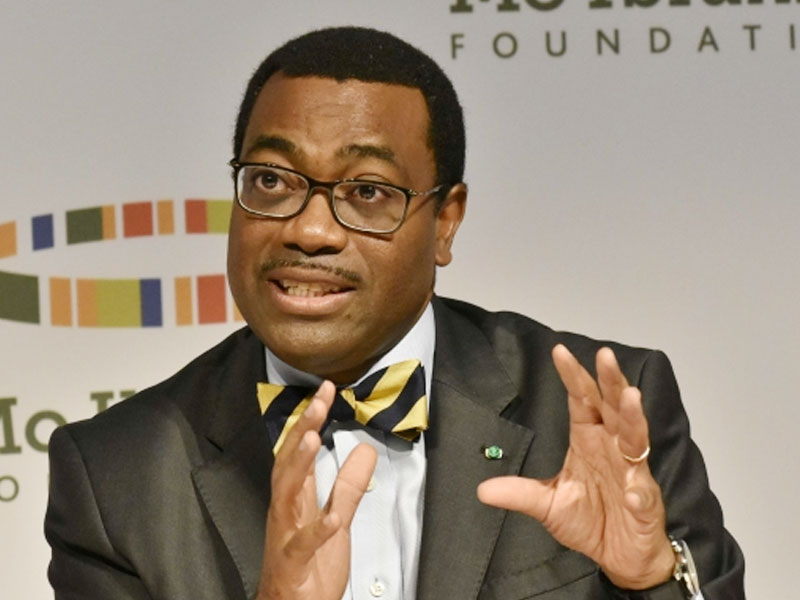Finance
AfDB president Adesina advocates finance of large scale youth-led businesses
Published
5 years agoon

AfDB president Adesina advocates finance of large scale youth-led businesses
With Agency Report
Read Also:
The African Development Bank (AfDB) has called on governments and private sectors in Africa to grow, finance and support large scale youth-led businesses in the continent.
President of the AfDB, Dr Akinwumi Adesina, said this at a virtual High-Level Roundtable on Scaling up Financing for Youth Entrepreneurship and Innovation in Africa from Abidjan, Côte d’Ivoire on Monday.
The webinar was tagged the “Rationale for the Creation of Youth Entrepreneurship Investment Banks.”
The AfDB had approved its Job for Youth in Africa Strategy to help create 25 million direct and indirect jobs and empower 50 million youth over a 10-year period.
The strategy is aimed at reducing barriers to youth innovation and entrepreneurship and addresses the issues of social and economic insecurity.
This is with the aim of preventing illegal migration, terrorism and political instability among African youths.
The bank also established a multi-donor Youth Entrepreneurship and Innovation Trust Fund, funded with $40 million by Denmark, Sweden, Norway, Netherlands, Italy and the UK.
Adesina said that the capacities and entrepreneurial drive of the youth in Africa needed to be unleashed to create jobs, noting that the youth must be supported to go beyond job seeking.
“We must grow, finance and support large scale successes of youth-led businesses in Africa.
“Existing financial institutions have failed to meet the needs of this rapidly growing population of the continent.
“This is due to lack of appropriate financing instruments; archaic credit risk assessments; focus on collaterals which the youth do not have; and lack of long-term financing horizon.
“That can deploy different types of financing instruments, from debt, equity, quasi-equity and guarantees over the life cycle of the businesses of the youth.”
Adesina said the continent had several programmes directed at improving the skills of the youth by countries, supported by bilateral and multilateral finance institutions.
He noted that though such programmes might have helped to impart some skills to support entrepreneurship, the youth still faced financing challenges to turn their ideas into viable businesses.
“It is time to put the capital of Africa at risk on behalf of the youth.
“It is time to create new financial ecosystems that are able to support the businesses of the youth, grow them, and unlock the latent demand for financing by millions of the youth.
“This will help to turn Africa’s demographic asset into an economic asset for Africa and for that, we must nurture the businesses of young people.
“We must tackle market failures and missing institutions that prevent the youth entrepreneurs from reaching their potential,” he said.
He noted that by developing a new financial ecosystem around the youth, that was systemic, scalable and sustainable, Africa would create youth-based wealth and jobs across the continent.
Share this:
- Click to share on X (Opens in new window) X
- Click to share on Facebook (Opens in new window) Facebook
- Click to share on WhatsApp (Opens in new window) WhatsApp
- Click to share on Pocket (Opens in new window) Pocket
- Click to share on Telegram (Opens in new window) Telegram
- Click to email a link to a friend (Opens in new window) Email
- Click to share on LinkedIn (Opens in new window) LinkedIn
You may like


AfDB Approves $3.9m for Nigeria, others to Connect 300m Africans to Electricity


AfDB, Invest in Africa Sign $850,000 Deal to Create Green Jobs in Ghana and Senegal


Africa Looks Inwards for Financial Sovereignty amid Falling FDI and Grants


Nigeria Launches $510m SAPZ Agricultural Revolution Backed by AfDB


AfDB Basks in Global Recognitions for Transforming Africa with $318bn Capital Base


AfDB, US Sign $700,000 Credit Rating Deal to Boost Africa’s Capital Flow












